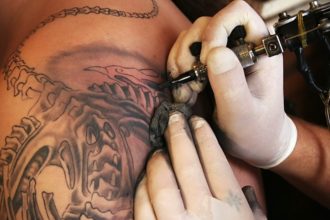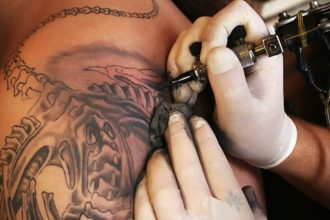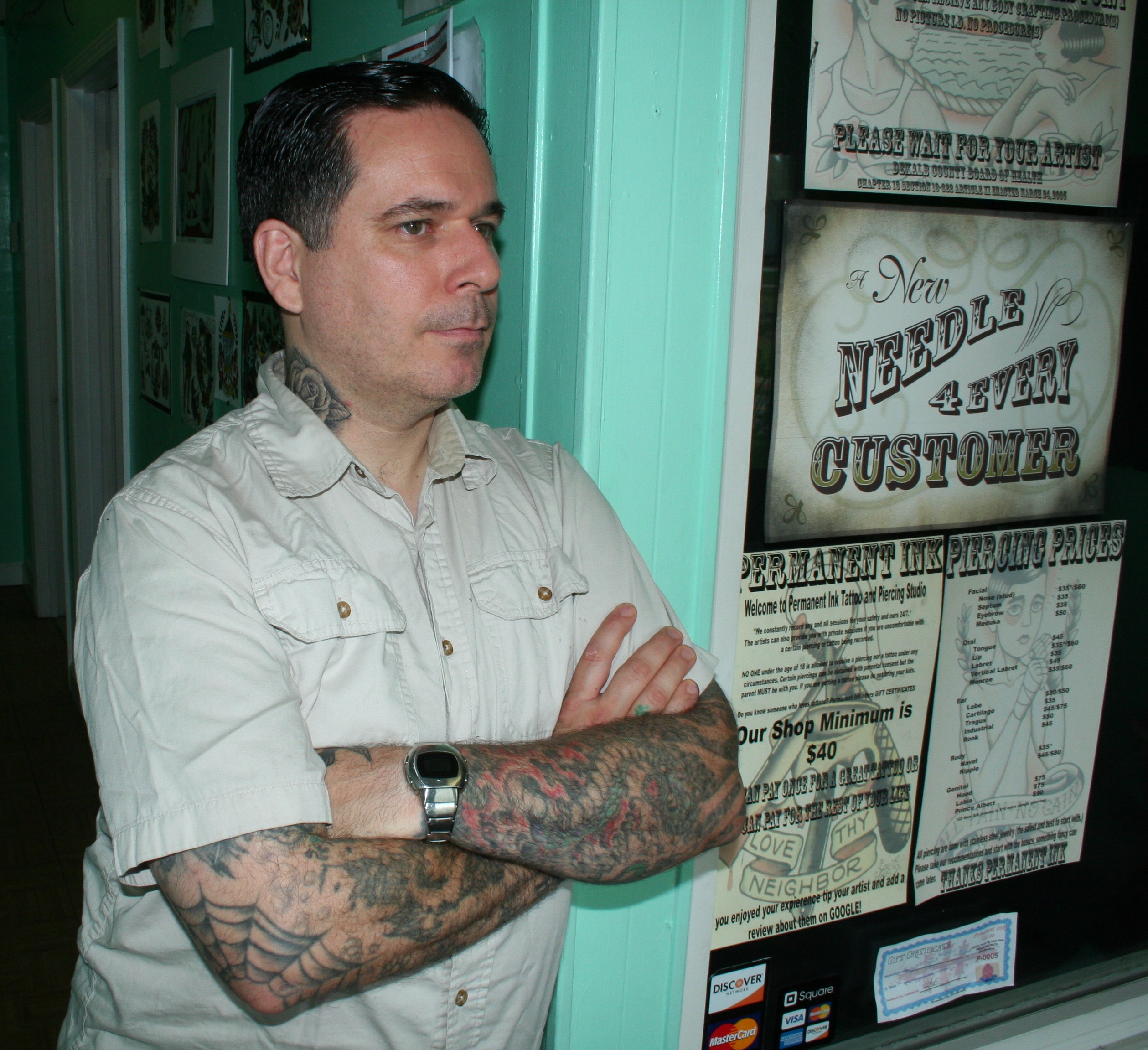
My daughter recently made a jarring announcement: “I’m going to get my nose pierced.’’
For an old-school father, this was unsettling news. I come from the so-called baby boom generation, and we made statements with our hair, not our skin. Back in the day, it seemed like only some military men and motorcycle riders got tattoos.
But clearly, the use of tattoos and piercings has exploded in this country, especially among the young adult population. About one-fifth of all Americans have at least one piece of permanent artwork on their bodies. And more than one-third of Americans aged 18 to 25 report having gotten a tattoo, according to the Pew Research Center. (Most states, including Georgia, ban or severely restrict the tattooing or body piercing of minors.)
After my daughter explained what was involved with the piercing, I became more comfortable with it. She is 23, a great young woman, firmly in control of her path. And it could be worse: I had visions of a Dennis Rodman-like bizarre tattoo splayed across her delicate neck.
She had the piercing done in North Carolina, at a tattoo parlor she had scouted out as safe — one that used new needles and had good sanitary practices.
Meanwhile, I’ve done some reconnoitering of my own to learn more about tattoos and piercings. While many “consumer complaints” in this field relate to tattoos that were amateurish and ugly, or soon became out of date, I was looking for something quite different. I wanted to know about the potential health problems associated with skin alterations.
Tattoo parlors – most of which also do piercings – do not fall under statewide health regulation in Georgia. State law, though, empowers the county boards of health to adopt tattoo regulations.
Local regulations on body art appear to vary significantly. The Macon Telegraph reported last year that in the 13-county North Central Health District of Georgia, only Bibb and Washington counties had any kind of regulations governing the body art business.
State law requires a license for such businesses, but for it to be enforced, each county has to adopt an ordinance spelling out the requirements, the article reported.
Tim Allee, environmental health director for the Northwest Georgia Health District, says his district has among the most stringent regulations in the state, requiring each artist to pass an exam and have training in CPR and First Aid and take a class in blood-borne pathogens.
Consumer vigilance required
While the tattoo-and-piercing business is booming, there have been some health problems reported.
The CDC says any non-sterilized water can contaminate tattoo ink with potentially harmful germs, which can lead to infections in those tattooed with the ink.
In January 2012, public health officials in New York received reports of a distinctive skin infection in 14 New York residents, and all the cases were associated with use of a nationally distributed, pre-diluted gray ink.
Skin infections can be hard to cure, and often require up to six months of treatment with drugs that can cause serious side effects, the CDC says. While some people’s infections may resolve themselves just from treatment with medication, others may require multiple surgeries to remove infected tissue, and those operations can lead to significant scarring.
If the equipment that’s used to create a tattoo is contaminated with infected blood, a person can contract blood-borne diseases such as tetanus and hepatitis B and C, according to mayoclinic.com.
And piercings, just like tattoos, can cause allergic reactions, skin infections, and similar blood-borne diseases.
“Since tattoos are not regulated [nationally] in any way, there are many unknowns that could pose potential problems for consumers in terms of the inks and tools used,” Dr. Michi Shinohara, a clinical assistant professor of dermatology at the University of Washington in Seattle, said in an American Academy of Dermatology news release.
“It is especially important for consumers to be aware of the potential risks, report any problem that develops to the tattoo artist and see a board-certified dermatologist for proper diagnosis and treatment,” Shinohara added.
Unlicensed tattoo and piercings shops – which often operate in private homes – “are a big problem in Georgia,’’ says Christian Reyes, who runs Permanent Ink Tattoo in Decatur.
In an illegal shop, Reyes says, “you can do anything you want. There’s no oversight.’’
Simple safety tips
Tattoo artist Paul DeAngelis says an unlicensed shop can do “poorly performed tattoos.” “I’ve heard stories of infections,’’ he adds.
Many underground tattoo shops operate in the Savannah area, WTOC reported last year. “Just because you buy a tattoo machine on eBay does not make you a tattoo artist,’’ Dave Oldham of Resurrection Ink told WTOC.
To reduce their risk of infection, the CDC says, consumers should:
* Use tattoo parlors approved or registered by their local jurisdictions
* Request inks that are manufactured specifically for tattoos
* Ensure that tattoo artists follow appropriate hygienic practices
* Be aware of the potential for infection after tattooing and promptly seek medical care if skin problems occur
Kevin Rogers, 30, an Atlanta cook who has 25 tattoos, says his requirements for a tattooing facility include use of new needles and “a clean environment.”
“I really don’t care about if they’re licensed. That means nothing,’’ he says. “I go to people based off recommendations.”
Vanisha Marcia, 32, says she got her tattoo in College Park. “I just make sure the places have no history of health issues.”
Both Rogers and Marcia say they have experienced no health issues related to their body art.
And thankfully, neither did my daughter after she got her piercing. The stud in her nose, in fact, is tiny enough that I almost didn’t spot it the first time I saw her with it.
GHN intern Sofia Kouninis, an Emory University student, contributed to this article.


